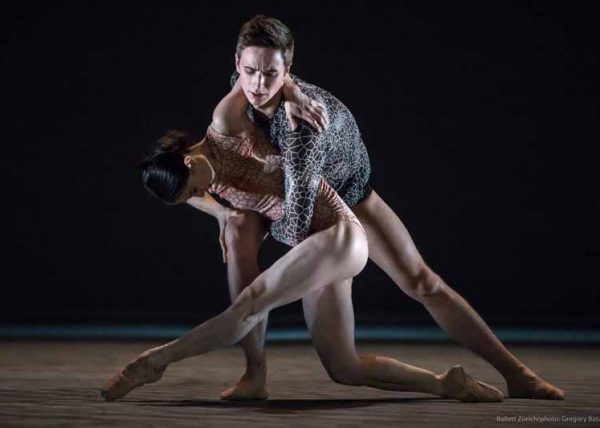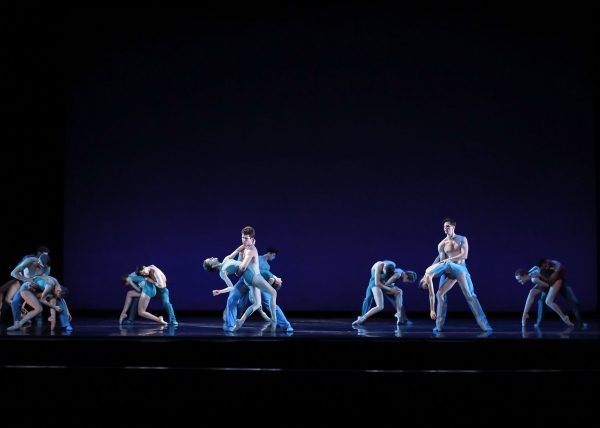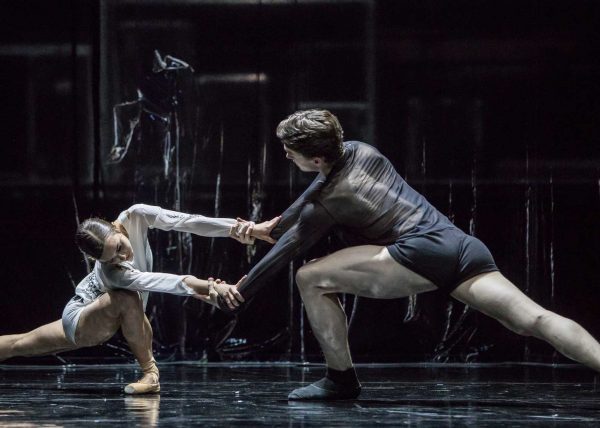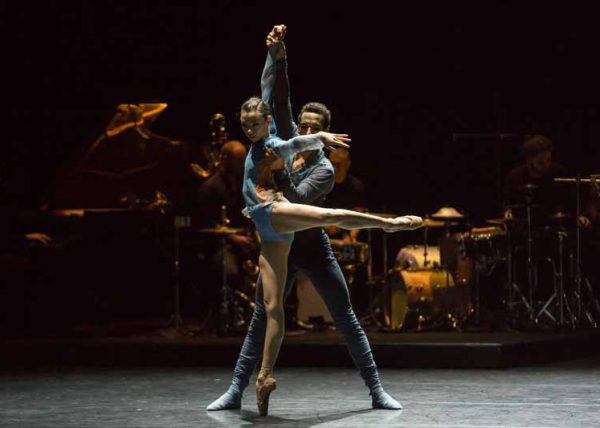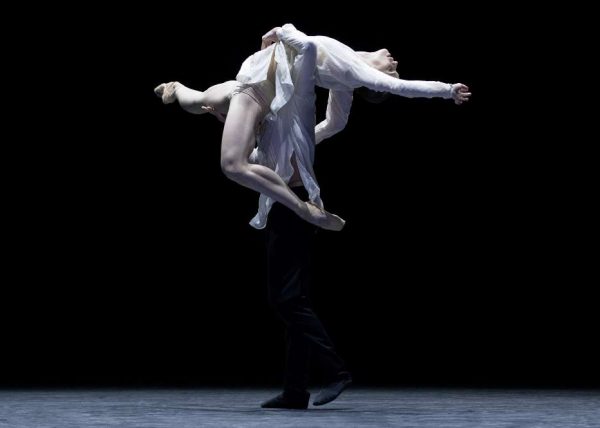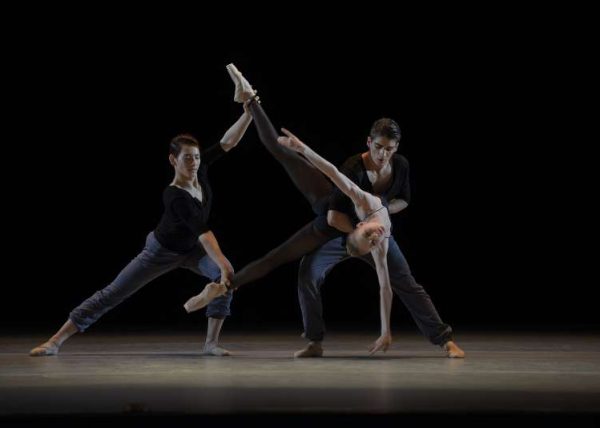disTanz
Portugal’s choreography takes the dancers to the very limits of physical possibility, and often incorporates the “beat” of the Bach in entirely startling ways. Rarely have I seen a dense collection of movements parallel a score so closely. A single note emphatically played, and a foot might strike out like a momentary afterthought, or an arrow-straight body suddenly crumple.
Stepping Over
Things take a happier turn in the world premiere of Filipe Portugal’s “Stepping Over,” set to parts of Philip Glass’ “Tirol” Piano Concerto. Women fall or swoon into guys’ arms; couples move through positions that are sensuous and chastely romantic by turns. Bodies stay flexible, pliant, almost melting into place.
Behind The Mirror
Ganz anders Filipe Portugals «Behind the Mirror». Der Pas de deux von Aurore Lissitzky und Cohen Aitchison-Dugas folgt dem zweiten Satz von Dmitri Schostakowitschs Konzert für Klavier, Trompete und Orchester in c-Moll. Und er folgt der Musik nicht einfach nach Noten, sondern in langen Atemzügen, mit weit gedehnten Gliedern und Bewegungen. Hochmusikalisch ist das, und deutlich wird auch hier der Lehrmeister: Heinz Spoerli.
Dialogos
The flow of words describes the Greek word "dialogos". Here a dialogue between music and dance is developed. However, this dialogue can arise from a confrontation. Talking to each other can also mean staying silent, arguing or sometimes simply crossing paths. It does not mean always remaining in harmony, but reaching new insights in the course of dialogue.
Liebestod
Filipe Portugal’s own choreography for the “Liebestod” from Wagner’s Tristan und Isolde, a young and fresh interpretation which premiered on New Year's Eve Gala 2013 at the Opera House of Zürich, and was created especially for the occasion featuring soprano Anja Kampe.
Uncontrolled
Music from Philip Glass (Orphée Suite: IV. Orphée and the Princess) created for Tanzakademie Zürich. Dancers - Margarida Neto & Alexander Bezuijen

